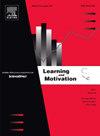中国青年学生人工智能应用目标与体验:成就目标理论视角
IF 1.8
4区 心理学
Q3 PSYCHOLOGY, BIOLOGICAL
引用次数: 0
摘要
近年来,对人工智能(AI)驱动的各种工具和技术进行了不同的研究。然而,在学术背景下,年龄群体在使用和感知人工智能工具方面的作用被忽视了。为了填补这一空白,本定性研究旨在探讨中国青年学生对人工智能采用目标和体验的感知。对58名通识教育学生进行半结构化访谈。专题分析的结果显示了不同的人工智能采用目标和经验。学生们将人工智能工具用于“深度学习和理解”、“个人成长和技能发展”、“发现新想法和解决方案”、“超越他人”以及“获得表扬和认可”。在经验方面,与会者提到了四个主题,即“人工智能对学习者的情感影响”、“提供个性化和自适应的学习路径”、“人工智能介导的语言学习”和“人工智能技术的伦理考虑”。本文对研究结果进行了讨论,并为青年学生、教师和教育工作者提供了启示,以提高他们的人工智能素养,并帮助他们在使用人工智能工具方面设定现实的目标和方向。本文章由计算机程序翻译,如有差异,请以英文原文为准。
Unveiling Chinese youth students’ AI adoption goals and experiences: An achievement goal theory (AGT) perspective
Different studies have been done on various tools and technologies powered by artificial intelligence (AI) in recent years. However, the role of age groups in using and perceiving AI tools has been ignored in academic contexts. To fill the gap, this qualitative research aimed to explore Chinese youth students’ perceived AI adoption goals and experiences. A semi-structured interview was conducted with 58 general education students. The results of thematic analysis showed different AI adoption goals and experiences. The students had employed AI tools for ‘deep learning and understanding’, ‘personal growth and skill development’, ‘discovery of novel ideas and solutions’, ‘others’ outperformance and surpassing’, and ‘praise and recognition attainment’. Regarding experiences, the participants referred to four themes, namely ‘the emotional impact of AI on learners’, ‘providing a personalized and adaptive learning path’, ‘AI-mediated language learning’, and ‘the ethical considerations of AI technologies’. The findings are discussed and implications are provided for youth students, teachers, and educators to augment their AI literacy and help them set realistic goals and orientations regarding the use of AI tools.
求助全文
通过发布文献求助,成功后即可免费获取论文全文。
去求助
来源期刊

Learning and Motivation
Multiple-
CiteScore
2.90
自引率
0.00%
发文量
53
期刊介绍:
Learning and Motivation features original experimental research devoted to the analysis of basic phenomena and mechanisms of learning, memory, and motivation. These studies, involving either animal or human subjects, examine behavioral, biological, and evolutionary influences on the learning and motivation processes, and often report on an integrated series of experiments that advance knowledge in this field. Theoretical papers and shorter reports are also considered.
 求助内容:
求助内容: 应助结果提醒方式:
应助结果提醒方式:


